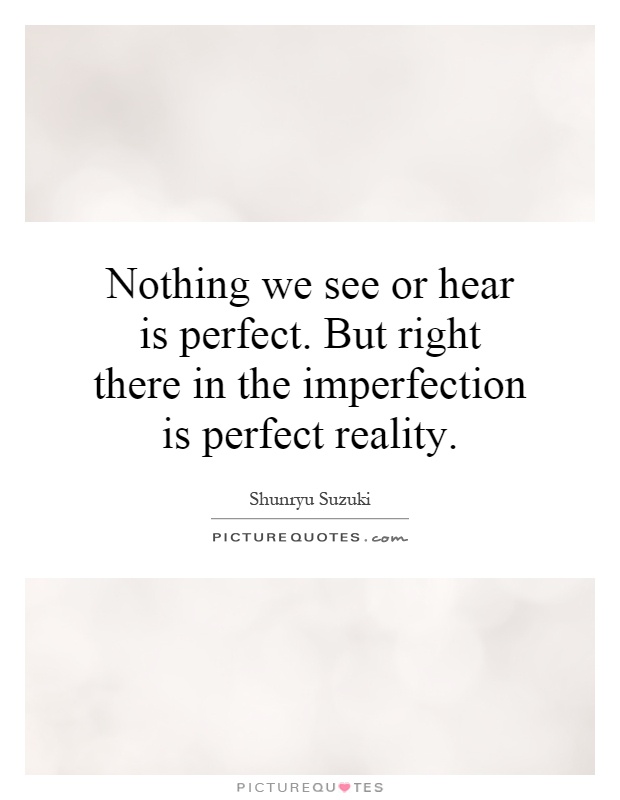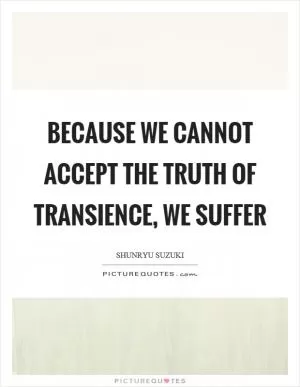Nothing we see or hear is perfect. But right there in the imperfection is perfect reality

Nothing we see or hear is perfect. But right there in the imperfection is perfect reality
Shunryu Suzuki, a renowned Zen master and teacher, once said, "Nothing we see or hear is perfect. But right there in the imperfection is perfect reality." This profound statement encapsulates the essence of Zen philosophy and offers a unique perspective on the nature of reality and perception.In Zen Buddhism, the concept of imperfection is not viewed as something negative or undesirable, but rather as an integral part of the natural order of things. Suzuki teaches us that perfection is not an attainable goal, as everything in the world is in a constant state of flux and change. Instead of striving for an unattainable ideal, we are encouraged to embrace the imperfections of life and see them as opportunities for growth and self-discovery.
When we look at the world through the lens of imperfection, we are able to see the beauty and complexity of reality in a new light. Suzuki reminds us that perfection is not a static state, but rather a dynamic process that is constantly evolving and changing. By accepting the imperfections of life, we are able to cultivate a sense of humility and gratitude for the world around us.
In Zen practice, the concept of "perfect reality" refers to the interconnectedness of all things and the inherent wisdom that can be found in every moment. Suzuki teaches us that by embracing imperfection, we are able to see the world as it truly is, without the distortions of our own preconceived notions and judgments.
Through the practice of mindfulness and meditation, we can learn to see the beauty and perfection in the imperfections of life. By letting go of our attachment to perfection, we are able to cultivate a sense of peace and contentment in the present moment.












 Friendship Quotes
Friendship Quotes Love Quotes
Love Quotes Life Quotes
Life Quotes Funny Quotes
Funny Quotes Motivational Quotes
Motivational Quotes Inspirational Quotes
Inspirational Quotes